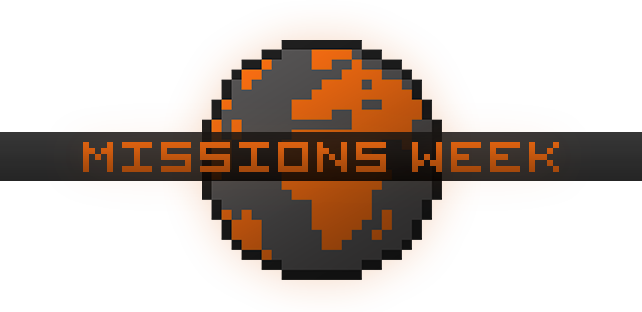Last updated on November 10, 2013
Obviously the entire gaming community has been abuzz for a number of months now about the next generation of consoles that are coming our way this holiday season. There has been outrage at Microsoft, glowing optimism for Sony, and a general consensus that we’re heading into a bright future for console gaming over the next decade or so. The real question, though, is this: How do we as Christian gamers take advantage of all that the next generation offers to be better disciple makers? Is the next generation of consoles good news for evangelism among gamers? How do we do effective missions work in the video game field?
The biggest boon of the next generation seems to be connectivity: in every way we’re moving into a future of increased communication in a variety of ways. No longer is our gaming communication limited to the games themselves: the party system of Xbox 360 was just a first step into a future that now branches into our other devices. Now gamers will be able to communicate (often in-game) on consoles, cell phones, laptops, and tablets. Even people who don’t share the same console or don’t even play video games at all can enjoy the absolute explosion of connectivity, because now gamers can be Skype chatting while playing. This is a huge development for the Christian gaming community, because increased communication channels only means one thing: an explosion in the number of ways that the Message of Christ can be shared. As communication itself goes viral in the gaming community, Christians can now make the Gospel go viral as well with all the tools to communicate and share literally at their fingertips.
However, evangelism itself is going to still center on one thing: building relationships. The next generation opens up an enormous possibility for increasing the number of relationships Christian gamers can build. Aside from the obvious increase in the number of people that can be stored on the friends lists of both consoles, the games themselves are literally built to encourage gamers to come into contact and build new friendships. For example, Bungie’s new game Destiny has a single player campaign that also has multiplayer events that bring together a large number of people at once. These events are built around players meeting up with other players and encouraging them to continue playing together. Other games seem to be moving toward a similar “multiplayer-singleplayer” campaign such as Titanfall and Watch Dogs. This means ample opportunity for Christian gamers to meet new players, build relationships, and share the Gospel.
This plethora of opportunities to build relationships also leads into an exciting possibility: online discipleship now becoming something that is both plausible and beneficial. With the inclusion of face-to-face communication and ability to be in constant contact through gaming channels alone, it becomes a real reality that Christians can develop real discipleship relationships with fellow gamers. Not that these discipleship relationships take the place of the local church, but considering the ties gamers have with other gamers and the amount of time gamers spend in the gaming world, it’s important to include prayer, confession, and accountability among the activities Christian gamers participate in. This means more effective ways of communicating and following up with those who Christian gamers share the Gospel with. This means gamer ministries can be more prolific and more effective in how they reach out to new Christian gamers, and that they are not limited by geography because these relationships can exist in the gaming world itself.
The cloud and the consoles themselves too will prove to be a huge resource to Christian gamers in another way: development. Both Sony and Microsoft have made it clear that their consoles come out of the box ready to be used as a development tool for independent developers. This never-before-seen accessibility to the design process of the average gamer means that almost anybody can — with enough time and energy — develop and possibly publish their own game. With games themselves being the biggest communicators in the gaming community, this puts the most powerful tool for communicating a message in this community into the hands of thousands of Christian gamers. We cannot possibly ignore the possibilities of communicating the most important message on the planet, that of the saving message of the Gospel, in the most significant way possible in the gaming community.
The next generation of consoles promise to bring lots of exciting things to the gaming community this coming holiday season, and we as Christians should be preparing now to utilize these exciting new possibilities to obey the greatest commandment: “Go therefore and make disciples of all the nations”.

